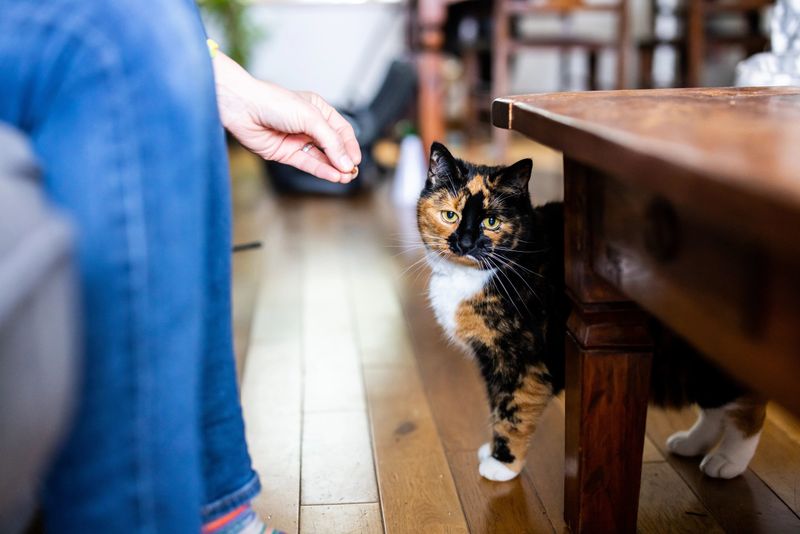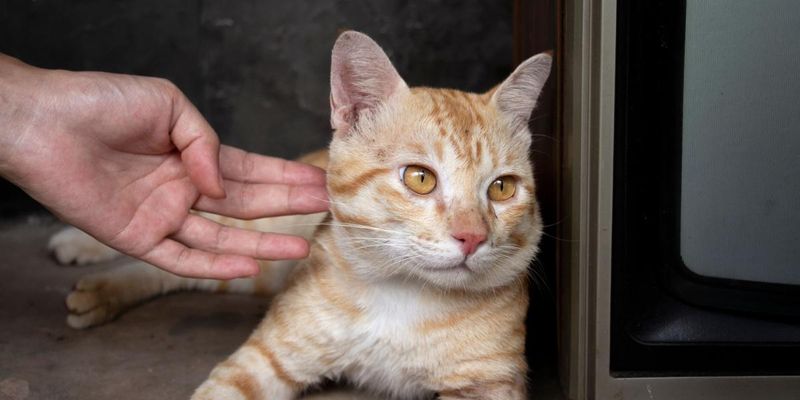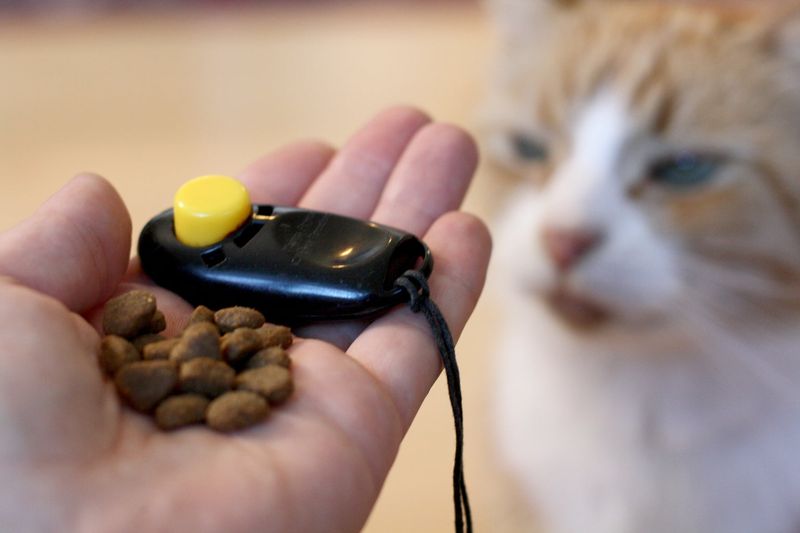📖 Table of Content:
- 1. They’re Not Trained to Respond
- 2. They’re Busy Doing Cat Things
- 3. Your Voice Tone Is Off
- 4. They Associate Their Name With Something Negative
- 5. They’re Just Being… Cats
- 6. Use Positive Reinforcement
- 7. Train With Clicker or Treats
- 8. Use a Special Sound
- 9. Get on Their Level
- 10. Make Name-Time Fun
If you’ve ever called your cat’s name only to be met with a flick of the tail or a slow blink, you’re not alone. Unlike dogs, who often come bounding over when they hear their name, cats have a reputation for being selectively deaf. It can be confusing—and sometimes a little frustrating—when your feline friend seems completely uninterested in acknowledging your existence, especially when you’re offering something good.
But here’s the thing: cats aren’t ignoring you out of spite. Their behavior is usually rooted in instinct, training (or lack thereof), and the way they perceive their environment. Once you understand why your cat doesn’t respond when called, it becomes much easier to build trust and improve communication. The good news? It’s absolutely possible to get your cat’s attention—you just need to approach it on their terms.
In this article, we’ll explore five common reasons why cats often ignore being called and share five effective, cat-friendly strategies to grab their attention in a positive way. Whether you’re trying to train a kitten or reconnect with a more aloof adult cat, these tips can help strengthen your bond and make “come here” actually mean something in your household.
1. They’re Not Trained to Respond
Luna doesn’t respond because she was never taught that her name means anything significant. Despite how often you call her, the sound of “Luna” is just background noise. Most likely, no one in her previous home ever paired her name with attention or treats. When she hears her name, there’s no compelling reason for her to react. Over time, a name can become meaningless without proper conditioning. Unlike dogs, cats aren’t instinctively inclined to respond to vocal cues. If you want her to recognize and respond, it’ll take some gentle, consistent training. Eventually, the name “Luna” could mean snack time, cuddle time, or something worth her curiosity.
2. They’re Busy Doing Cat Things
Staring out the window, your cat is in a trance, laser-focused on a squirrel’s every twitch. No matter how many times you call, that moment of feline instinct outweighs your voice. Even if they hear you, they’re prioritizing their prey-like fixation. Right now, your voice is competing with their most ancient, primal instincts. When a cat zones in like this, it’s not personal—they’re just in hunting mode. Trying to break that focus can feel like shouting into a void. Later, they might respond, but during these moments, you’re simply not as interesting. Unless you interrupt the moment with a sound or scent they associate with reward, you’re background noise to their inner lion.
3. Your Voice Tone Is Off
Calling your cat with a flat or annoyed tone can be more off-putting than you realize. Just like people, cats pick up on emotional cues in your voice. Without an upbeat or friendly pitch, they may interpret your call as uninviting or even threatening. Sometimes, we raise our voice unconsciously, which only pushes them further away. In contrast, a soft, melodic voice is more likely to pique their interest. Your tone can either invite curiosity or send them hiding under furniture. By simply adjusting your voice to a more positive, higher-pitched sound, you might get a very different reaction. Next time, try saying their name like you’re offering a treat—and see how fast they perk up.
4. They Associate Their Name With Something Negative
Every time you call Bella, it’s followed by an unpleasant experience—no wonder she runs. To her, the name “Bella” now means stress, confinement, or discomfort. Rather than associate it with love or fun, she links it to nail trims and carriers. Eventually, cats build strong associations, good or bad, and act accordingly. Imagine being called only when something unpleasant happens—you’d stop responding too. To reset her reaction, you’ll need to build positive moments around her name. Start saying “Bella” before meals, playtime, or cuddles. With patience, she’ll learn that her name can also mean happy things.
5. They’re Just Being… Cats
Sometimes, your cat hears you and chooses not to care—classic cat behavior. They might make eye contact, then roll over and nap like nothing happened. Even when they hear you clearly, cats often decide whether you’re worth the effort. In many ways, this aloofness is part of their charm (and frustration). Unlike dogs, who thrive on pleasing you, cats thrive on choosing to interact. That doesn’t mean they don’t love you—it just means they’re on their own schedule. Occasionally, you’ll get a response, but only when they’re in the mood. Learning to respect their independence is part of earning their trust.
6. Use Positive Reinforcement
Start by pairing your cat’s name with something they enjoy, like treats or affection. Instead of calling them randomly, say their name just before giving them something good. Over time, they’ll learn that their name leads to a reward. You might notice them perking up the moment they hear it. Don’t expect immediate results—it takes consistency and repetition. Reinforcing the name positively builds trust and response. Try using their name during calm, loving moments, not just when you need something. Eventually, your cat will associate their name with good things and start tuning in.
7. Train With Clicker or Treats
Training a cat may sound ambitious, but it’s entirely possible with the right tools. Use a clicker or simple treat-based reward system to teach your cat to respond. Begin by saying their name, then rewarding them for just looking at you. Once that step is solid, start rewarding them when they take a step toward you. Training sessions should be short, fun, and done daily for best results. Cats respond best when they’re relaxed and engaged. This method taps into their natural curiosity and problem-solving instincts. In time, they’ll not only know their name but come to you on command.
8. Use a Special Sound
Not all cats respond to names, but many react instantly to familiar sounds. The crinkle of a treat bag or tap of a food bowl often does the trick. Try associating a specific noise with good things to grab their attention faster. Some people even use a bell or whistle before mealtime. Repeating the same sound pattern daily helps your cat make the connection. Over time, they’ll come running when they hear it, regardless of what you say. This trick is especially handy when names don’t seem to work. Just be consistent with the sound and timing to build that association.
9. Get on Their Level
Sometimes cats ignore you simply because they feel disconnected or overwhelmed. Lowering yourself to their height can reduce that barrier and make them feel safe. Try sitting or lying down near them when calling their name. A soft, gentle voice goes a long way in those moments. You’re more likely to get a response if they don’t feel threatened or pressured. Cats often respond better when the interaction feels mutual, not demanding. Eye contact combined with open body language can also draw them in. Building communication on their terms increases the chance of a positive interaction.
10. Make Name-Time Fun
Use your cat’s name during play, cuddle time, or treat sessions to create a joyful connection. If their name always leads to something they enjoy, they’ll start paying attention fast. Avoid using their name only during negative situations like scolding or vet trips. Instead, say it before tossing a toy or offering a treat. Reinforcing the name with fun activities makes it stand out in their mind. Play-based learning is natural for cats, and they’ll respond if it feels like a game. Keep the mood light and your tone happy when calling them. With enough repetition, they’ll associate their name with all the best moments.










